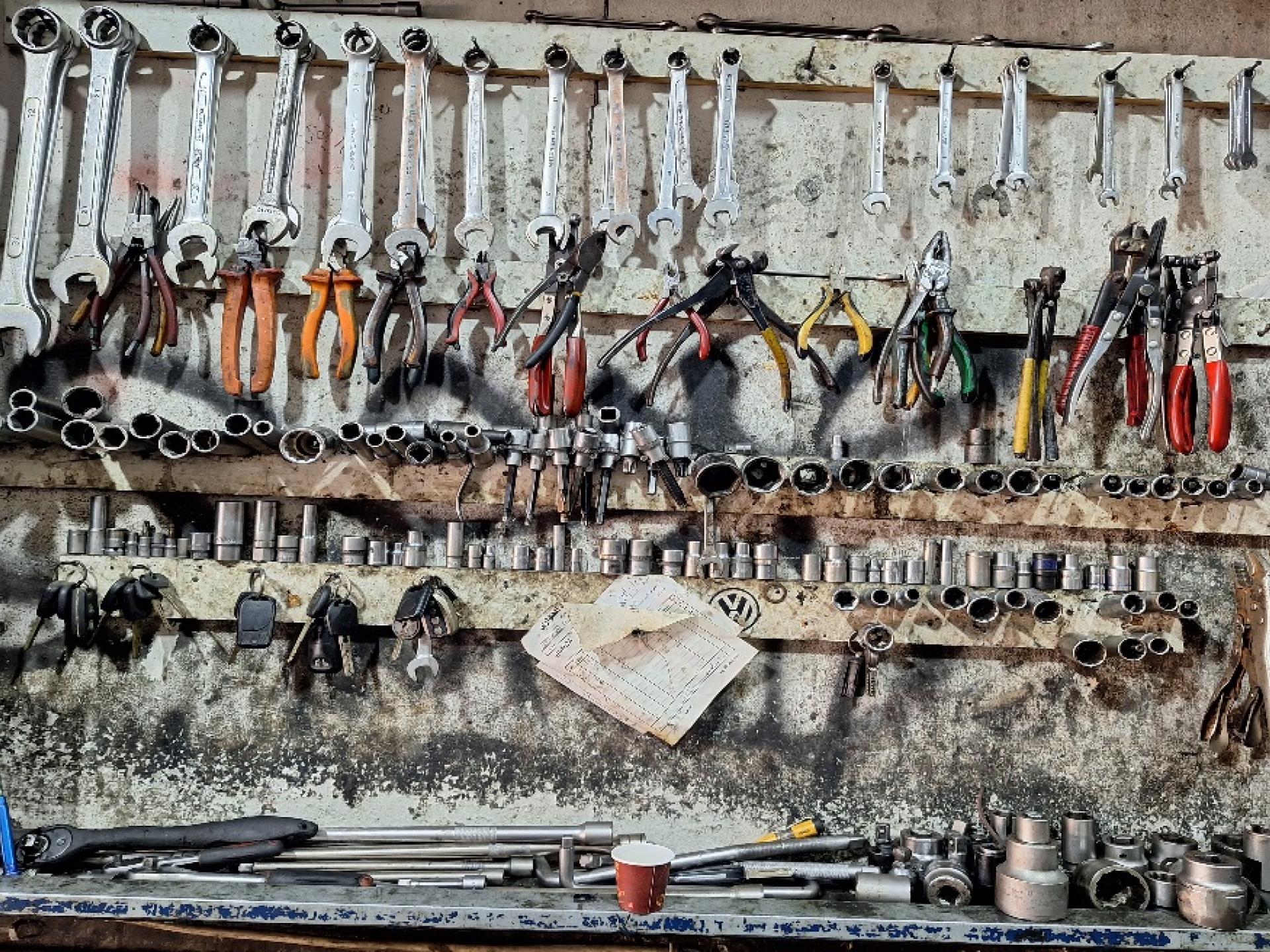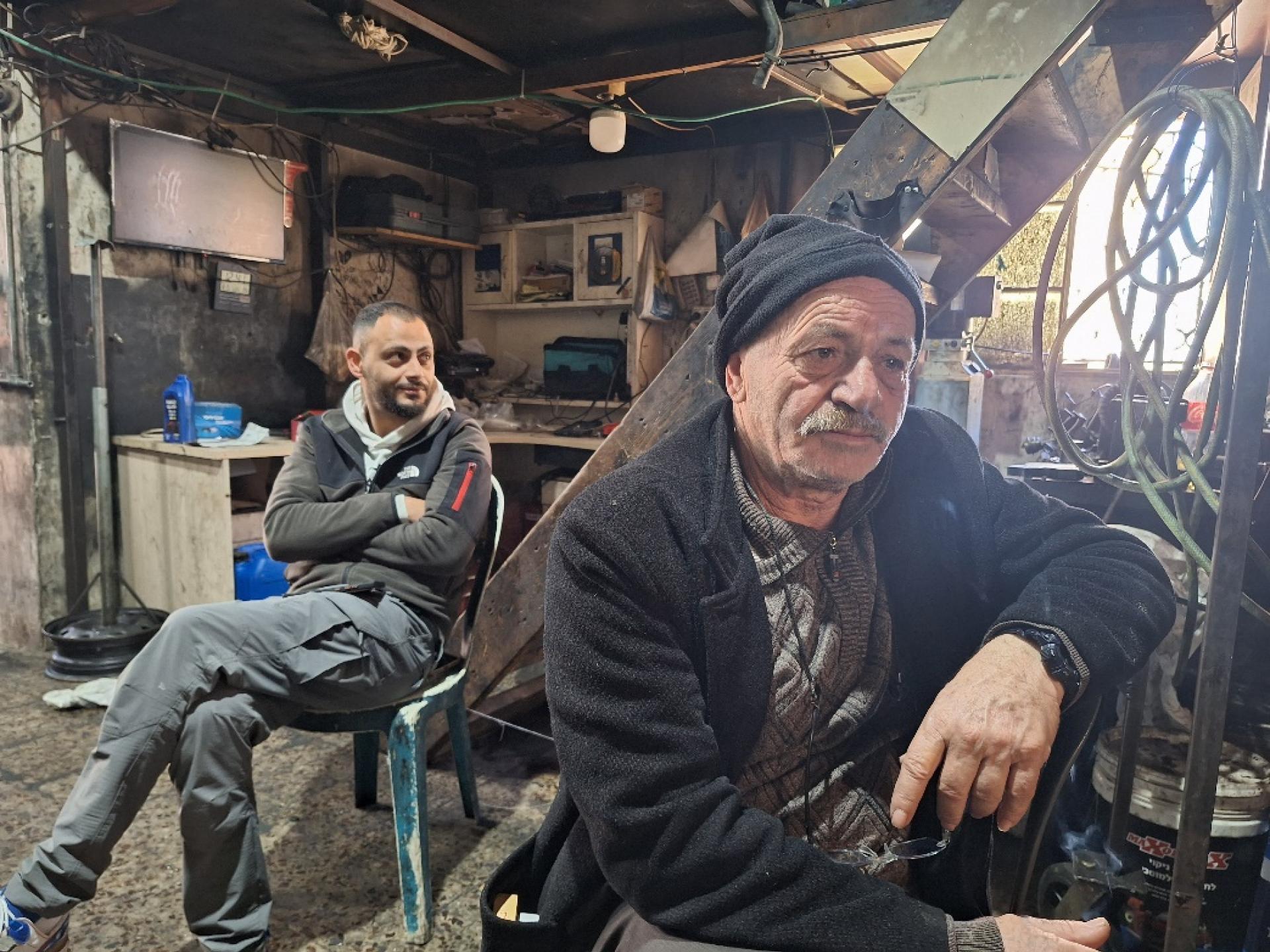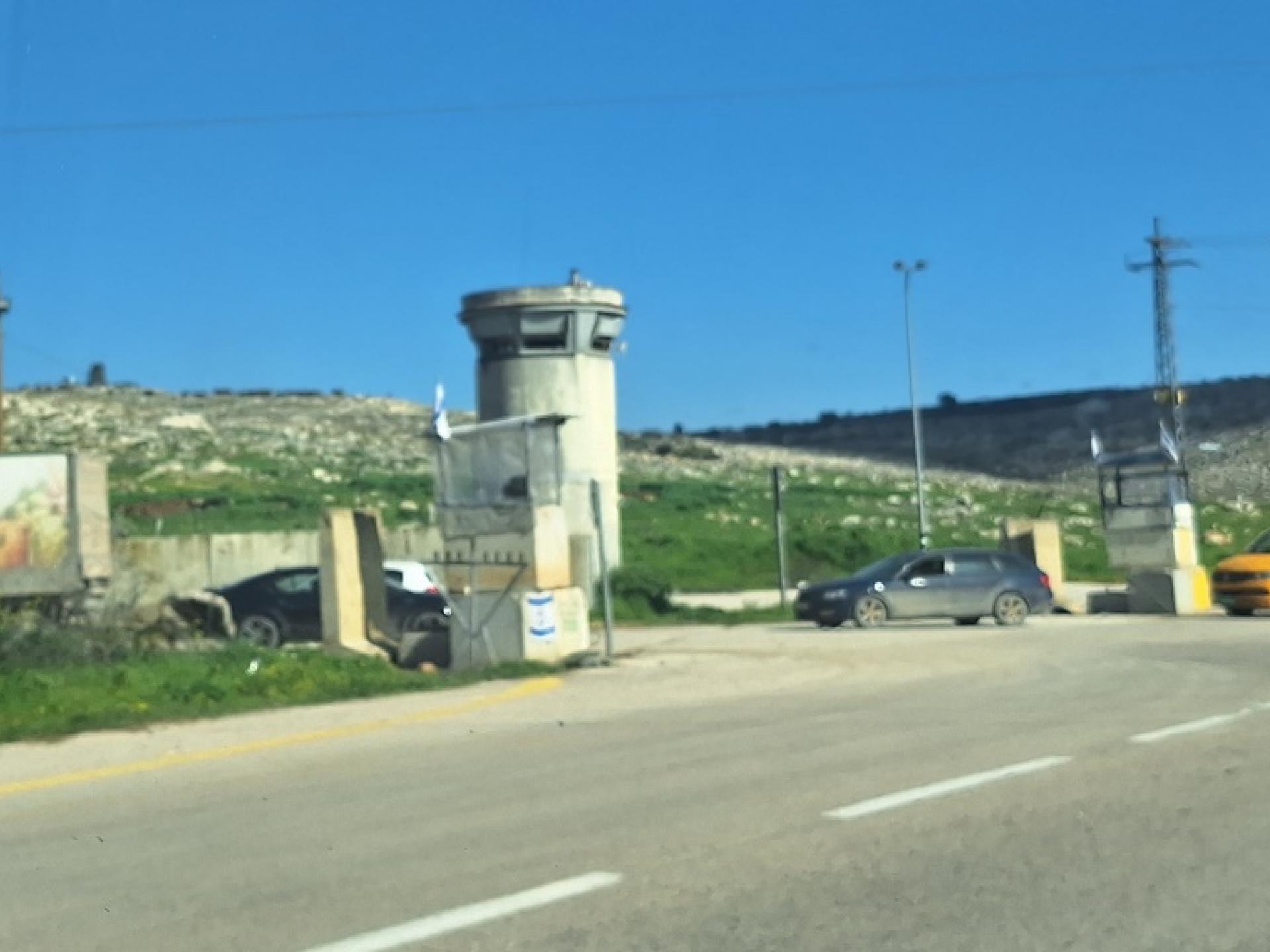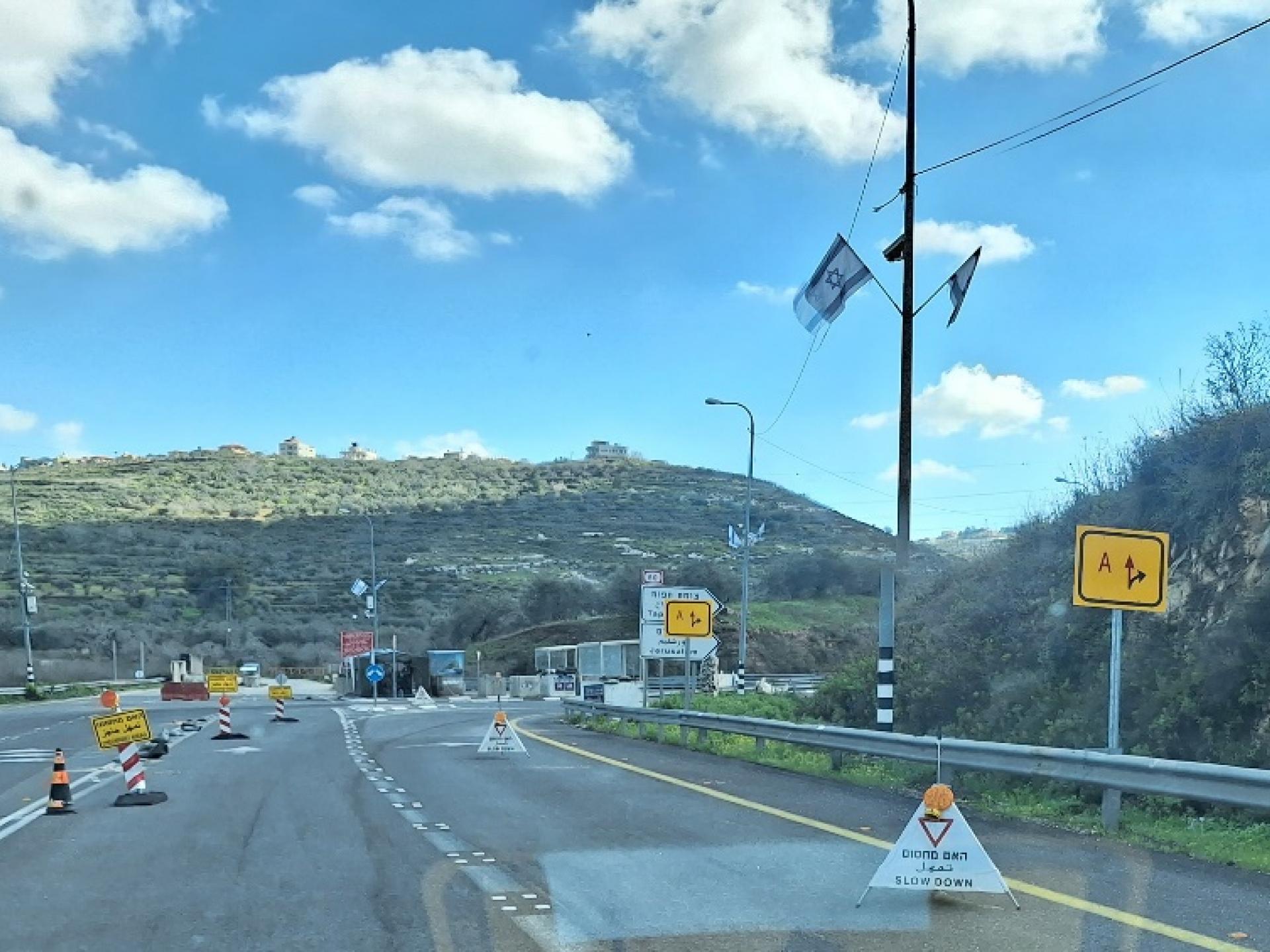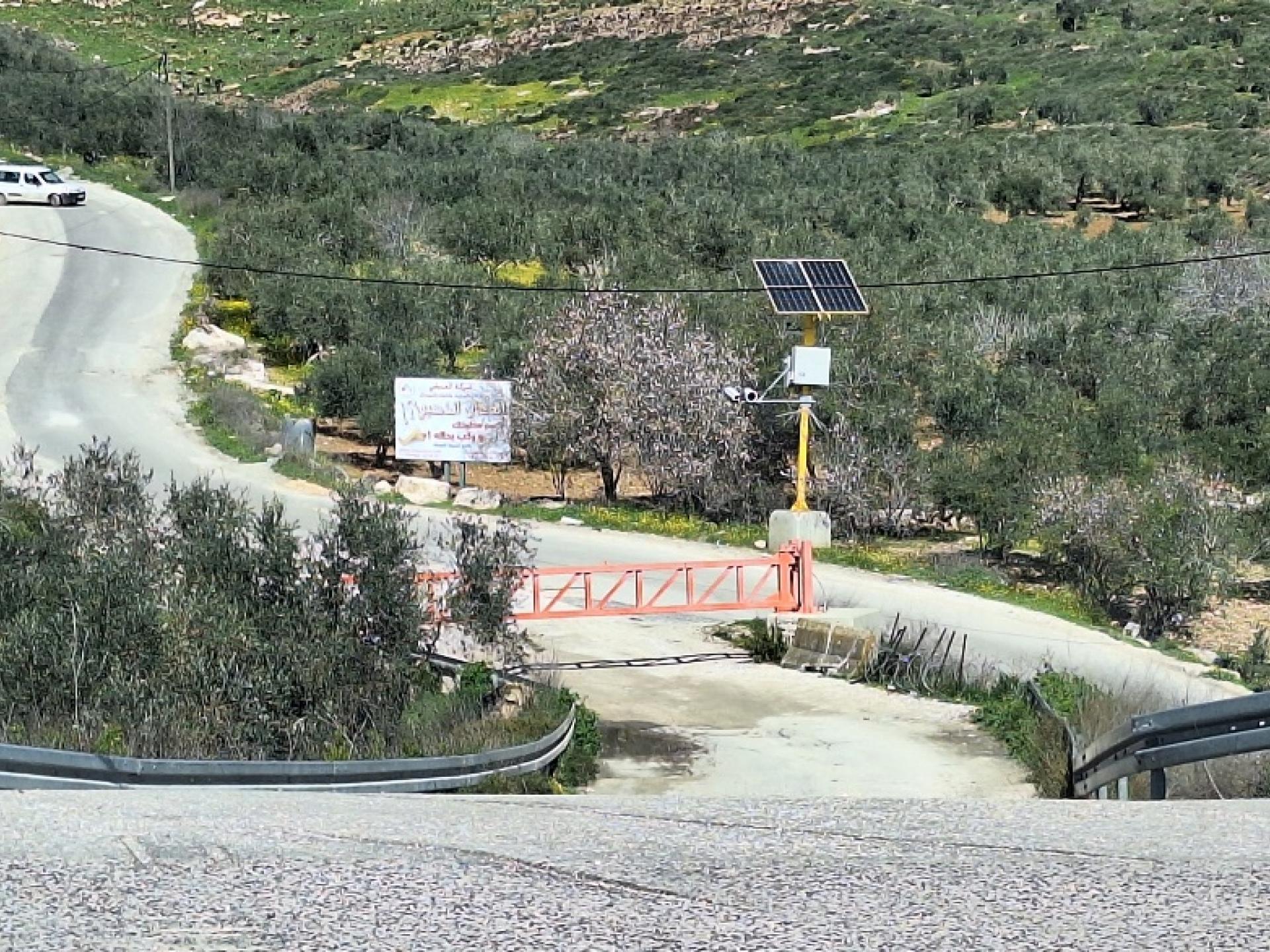The Central West Bank - no work, no money, no hope. Only despair
The war backs up the ever-growing damage of Palestinian human rights
We met in Tel Aviv, loaded packages and drove to Ramat HaSharon to get more packages gathered by our friend Rachel, for Z. of Azzun.
We stopped at O.’s nursery to shop and talk. The Habla gate has not been opened since war broke out. 2-3 of the nursery workers arrive from Qalqiliya through the Eliahu Checkpoint.
Although the nursery needs more workers, Israel does not issue the required permits.
The road to Habla is patrolled all the time without the Military Policemen who used to open the gates . Illegals cross every day. No choice - they have got to make a living. Some of them are caught by soldiers, who get to the nursery and search every corner. Sometimes they even fly drones to search for illegals.
. Illegals cross every day. No choice - they have got to make a living. Some of them are caught by soldiers, who get to the nursery and search every corner. Sometimes they even fly drones to search for illegals.
As far as the range of work at the nursery is concerned, O. says he is now selling about 10% of what he was used to selling before the war.
The Israeli army enters Qalqiliya night and day. Soldiers break into houses, search them and leave chaos. Today several young people were arrested. Where were they taken? How will they be punished?
O. assumes that Qalailiya does not have many Hamas members, but he cannot know.
Everyone is very worried about Ramadan approaching next month. How will they celebrate it this year? At Lod, Ben Gvir (Israeli Minister of Homeland Security) has forbidden the Muezzin cry. What next? What other draconian orders will be imposed?
One of O.’s sons studies in Jenin, and his daughter studies biology in Nablus. O. helps her, waits for her to finish classes and take her back home. A father’s care in hard times.
Between Izbat Tabib and Nabi Elias we met Z. and his wife. We had many packages for them as well as a respectable sum of money donated by our members. Thanks to all our donors.
We met S. from Qaddum at his garage on Road 55, before the left turn to Qaddum village. When we took tours to the central West Bank, S. used to guide visitors at Qaddum. His business now, too, is about 10% of what it was until the war.
The village’s weekly Friday protest demonstrations still take place, but since war broke out the Israeli army is much more violent. Soldiers fire bullets and hurl teargas canisters even before the villagers come out of the mosque after prayer. It is hard to make way up the track, even brave young people hold back.
Days and nights soldiers enter homes just as they have been doing in most West Bank villages, messing around the cupboards and closets and the house in general. Lately they stole money from two villagers. One lost 4,200 shekels and the other 10,000 shekels - everything the two had managed to save painstakingly over time. There is no one to report or turn to. The officers must be giving their subordinates a free hand and perhaps even share the booty. S. says soldiers shoot anything moving. Two months ago they shot a young man in the leg. He was seriously injured and spent two months at the hospital. They come to kill us, he concludes emphatically. Many roads are closed off in this area. The army stops vehicles for over three hours. Young people are often detained for eight hours.
There’s no work, no money, savings are through and only worry remains intact.
We continued on Road 60 south-eastward on our way to Huwara.
Huwara - as of today all shops are open in Huwara, but empty. There are very few Israeli cars on the main road. No Palestinian cars are seen. On our way, at every single junction we saw soldiers with drawn guns.
The new bypass road serving settlers only, will be called Road 60 now.

